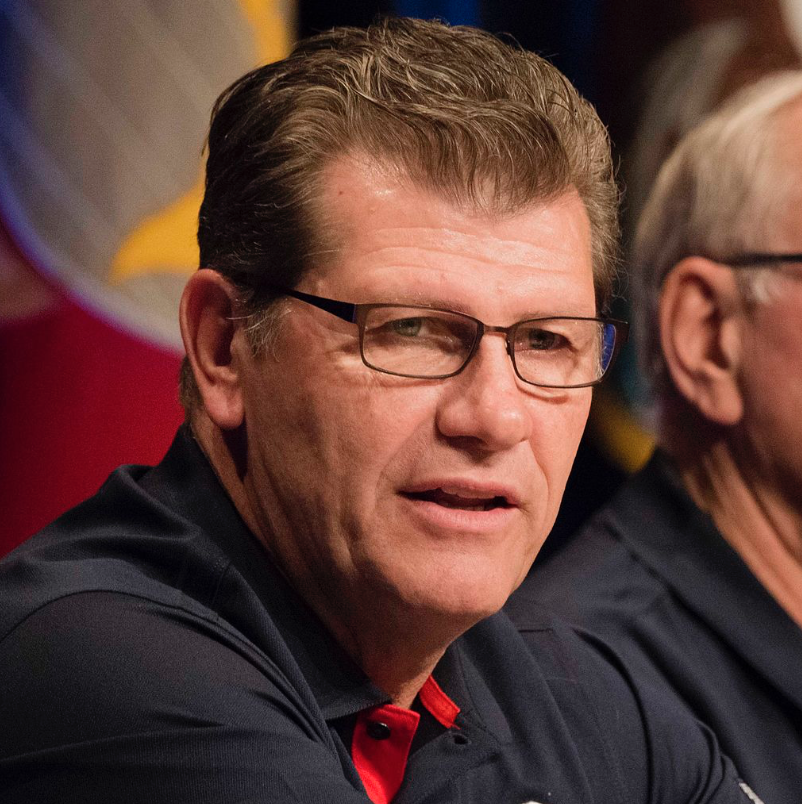Coach Geno Needs To Check Himself
By ‘Not That Dad’
While addressing reporters on April 2, Geno Auriemma, head coach of women’s basketball at the University of Connecticut, made the following incredible statement:
“The majority of coaches in America are afraid of their players.”
Let’s pause to consider that comment. Particularly those of you who have ever played at the collegiate level, or have had kids playing at that level, let that statement sink in for just a second. I’ll give you a minute …
Auriemma continued:
“The NCAA, the athletic directors and society have [sic] made them afraid of their players. Every article you read: ‘This guy’s a bully. This woman’s a bully. This guy went over the line. This woman was inappropriate.’ Yet the players get off scot-free in everything. They can do whatever they want. They don’t like something you say to them, they transfer. Coaches, they have to coach with one hand behind their back. Why? Because some people have abused the role of a coach.”
Auriemma is clearly asserting that there is a power imbalance between players and coaches in NCAA sports, that this imbalance favors the players, and that this imbalance adversely affects how coaches are doing their jobs.
I have known at least three dozen college athletes and their families over the past ten years. I can assure you that none one of them ever felt powerful in their relationship with their college coach. Coaches control scholarship offers, rosters, playing time, scholarship renewals, and a whole host of other things that impact the lives of their players. They are experienced adults who understand every nook and cranny of NCAA regulations, and they have an entire athletic department and legal team behind them.
College athletes, on the other hand, must navigate this process and the coaching relationship with no experience and little guidance. They are almost all minors when they commit to their college programs. As soon as they are allowed by the NCAA, college coaches begin communicating with them directly, relegating all the adults in their lives to third-party status. They have no agents, no players’ association, no collective bargaining power. It’s just the athlete up against the NCAA and the college sports machine.
When Will Parents Start Standing Up For Coaches
None of this means that every coaching situation is manipulative or contentious. Far from it. Many coaches have great relationships with their players. But in the context of Auriemma’s statement, it is important to understand the true nature of the player-coach relationship. Clearly, there is a power imbalance, but it overwhelmingly favors the coaches, not their players. Auriemma’s statement is, quite simply, preposterous.
Unhappy athletes have only four general options: try to stick it out in a bad situation, complain and risk souring their relationship with their coach further, transfer to another school/program, or quit altogether. Transferring is not even a realistic option in many cases as the NCAA prohibits schools from contacting players without the express consent of their current Athletic Director. So even asking for a transfer could trigger retaliatory consequences. All of these paths carry tremendous risk for the players. Suggesting that players can “do whatever they want” and “get off scot-free” is myopic at best and shockingly self-absorbed at worst.
Why Coaches Are Quitting Youth Sports
In order to makes sense of this, it is important to note that Auriemma’s situation is not typical. He is arguably the most successful coach in the history of women’s collegiate basketball. He earned $2.4 million (in base salary alone) in 2018. Playing for him is the surest path to the WNBA and to the US National Team. His teams are expected to make the final four every year and to win national titles with some regularity. Accordingly, he is able to recruit far more 5-star athletes than just about any program in the country. Athletes of that caliber (the 1% class) wield a bit more power than the other 99% of the field. When an athlete of that stature decides to leave a program, or makes a statement directly critical of the coach, it gets headlines. Coaches don’t like that, and athletic directors, university presidents, and boards of trustees like it even less.
So it is fair to say that Auriemma, probably for the first time in his career, is “afraid” of his players, but that condition is directly attributable to his success and certainly does not apply to “the majority” as he claims. He has the most to lose by alienating a top player, and his players have a microphone to leverage. Most college coaches and more importantly, most players, are not operating under those conditions.
Check your privilege, Coach.
